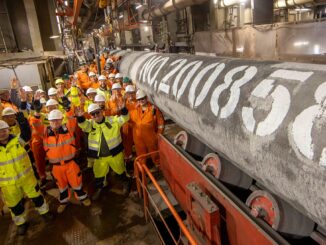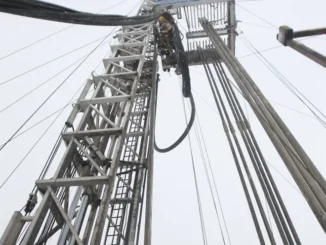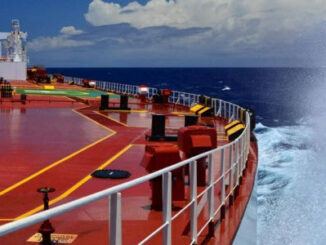
Essay by Eric Worrall
MET Climate scientist Peter Stott lamenting Climategate, and that time he was ambushed by the Russian Academy of Sciences, tricked into entering a room which contained people who don’t agree with him.
The long fight against climate change deniers
A string of climate change deniers have sought to downplay the significance of global warming and humanity’s role in driving it.
20 Oct 2022
When climate scientist Peter Stott checked into his flight from London to Moscow in July 2004, his excitement gave way to shock when a colleague explained their agreed schedule had been ripped up.
They had expected to compare findings and strengthen ties with counterparts in Russia – but discovered key promoters of the unscientific view that humans have no key role in driving climate change had been invited, too.
“It was an ambush,” Stott said.
The meeting at the Russian Academy of Sciences had been changed by Russian President Vladimir Putin’s then-adviser Andrei Illarionov, an ardent critic of the Kyoto Protocol, a 1997 United Nations deal to cut emissions, which was awaiting ratification by Russia.
“He was using scientists as tools in his propaganda war,” said Stott, who specialised in identifying man-made and natural causes of climate change at the United Kingdom’s Met Office and the University of Exeter.
Stott and his colleagues were tasked with debating sceptics including Richard Lindzen, a climate contrarian who was at the Massachusetts Institute of Technology at the time, and controversial British weather forecaster Piers Corbyn. Stott described the experience of having to defend climate science in Russia as “very threatening”.
…
One of the biggest setbacks in the battle against climate denial came in 2009 with the scandal known as “Climategate”, Stott said.
…
“We lost at least six years [of progress] in that time,” Stott said – a critical delay with scientists saying still-rising emissions must now plunge by nearly half from current levels by 2030.
…
I’m not sure why Stott seems to think the Paris Agreement is such a success. The world is currently burning record amounts of coal, so I think we can safely add the Paris Agreement to the scrapheap of failed climate initiatives, regardless of political rhetoric.
As for Russia, Russians have likely been skeptical of Western climate science ever since Western scientists ignored Russian advice there was no evidence of unusual warming in the 20th century.
In 1998 scientist Rashit Hantemirov, of the Institute of Plant and Animal Ecology, Russian Academy of Sciences, tried to explain to Keith Briffa, who helped Michael Mann construct his iconic hockey stick, that the position of the polar timber line, the northern most point at which trees can grow, was the tree metric Russia uses for measuring historic changes in Arctic temperature. Hantemirov’s advice to Briffa was “… there are no evidences of moving polar timberline to the North during last century…“. That same polar timberline metric showed evidence of substantial movement during the medieval warm period, and other well documented historic warming and cooling events (Climategate email 0907975032.txt).
Western scientists seem to prefer tree rings – but even Mann’s colleagues admitted amongst themselves that tree rings are a questionable gauge of historic temperature. Climate scientist Tom Wigley wrote an email to Professor Michael Mann in 2003, in which he explained how his own son performed a high school science experiment which demonstrated Mann’s tree ring metric was likely measuring changes in precipitation rather than changes in temperature (Climategate 2 email 0682.txt).
We can only guess what Russian scientists thought of all this absurdity – but the evidence suggests they decided it was too funny watching Western climate scientists act like fools, to make a serious effort to interrupt the joke.
Of course, the Russian Academy of Sciences joke couldn’t go on forever – someone in Russia’s government probably decided the Western climate alarmist movement was starting to do real harm. So Russia staged the “ambush” in 2004, in which they tried to put Western climate alarmists together in the same room with other Western scientists who didn’t agree with them.
Those dastardly Russians, they just didn’t understand that is not how Western climate science works. What a ridiculous, underhanded dirty trick, putting well qualified people who have different interpretations of the data together in the same room, to see if they can resolve their differences.
In my opinion we have plenty of evidence Western climate science doesn’t do disagreement or criticism. Just look at the wild divergence between climate model predictions. There seems a consensus that Climate science is a special field of science, a field of science governed by politeness, unlike barbaric fields of science in which people challenge and attempt to refute the ideas of others. A field of science in which no theory or model ever seems to be discarded, regardless of how wildly it diverges from observations – providing the model prediction stays safely above the IPCC recommended minimum climate sensitivity.
modelsvsdata.png
In any other field of science, the most ridiculously divergent models would be quietly discarded. But this just doesn’t seem to happen in Western climate science.
“People underestimate the power of models. Observational evidence is not very useful. Our approach is not entirely empirical.” – Fellow MET scientist John Mitchell, reported by The Register in 2011.
Update (EW): Katphiche wanted a more recent model divergence diagram, the following was prepared by John Christy in January 2021.
Source: Climate Model Democracy



